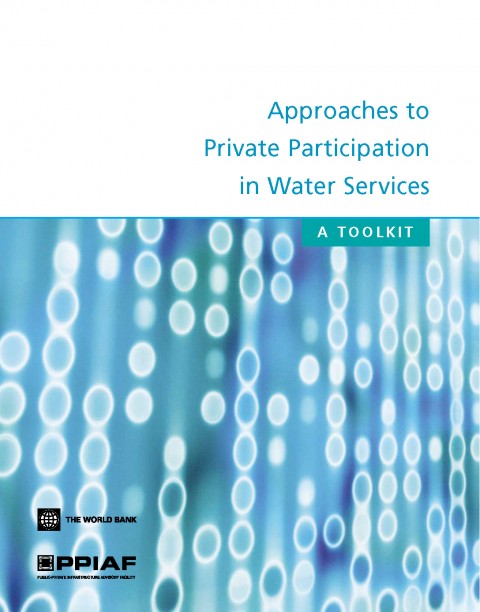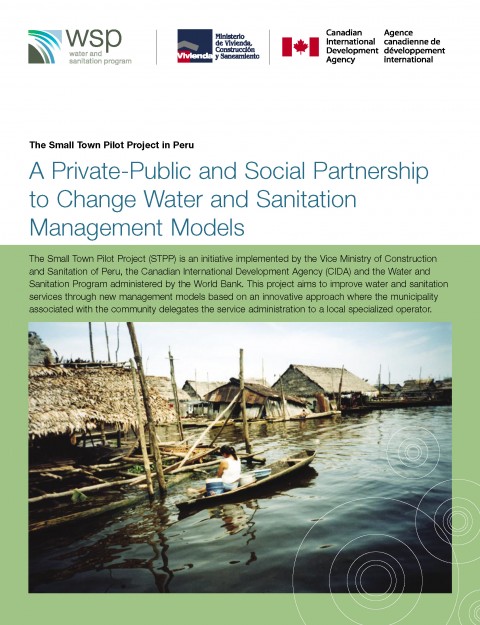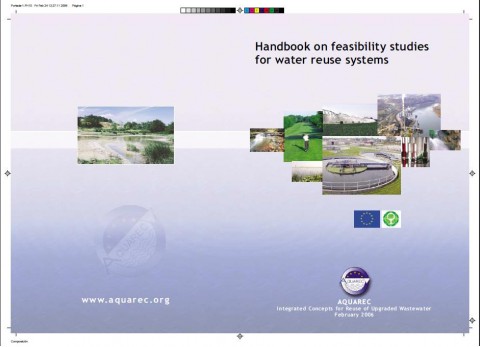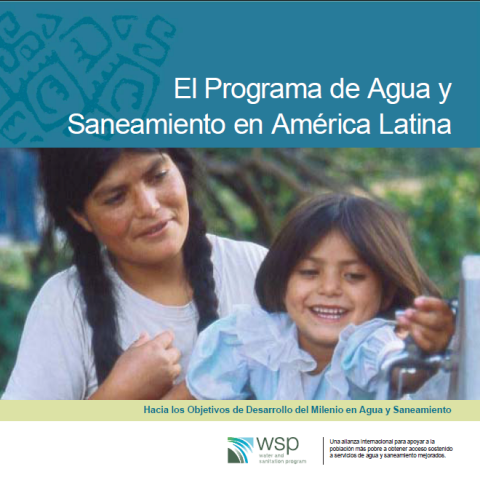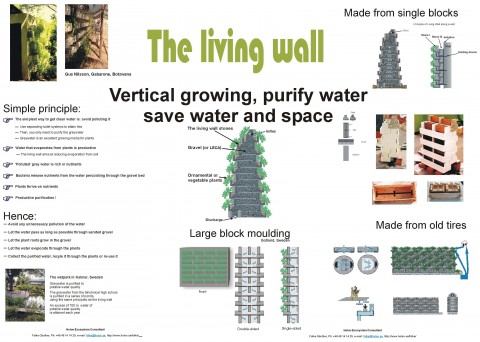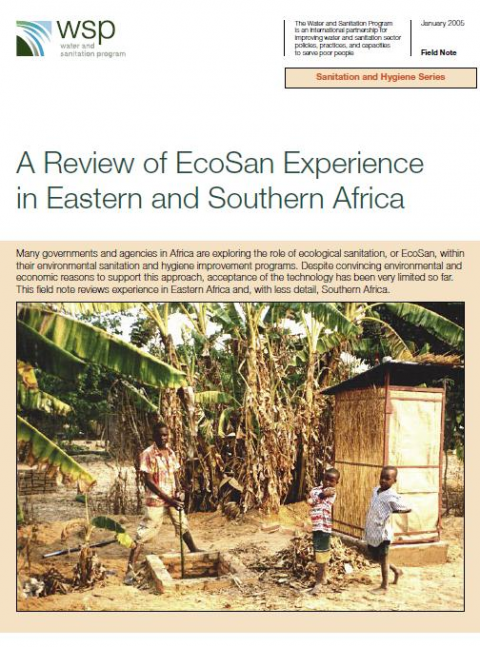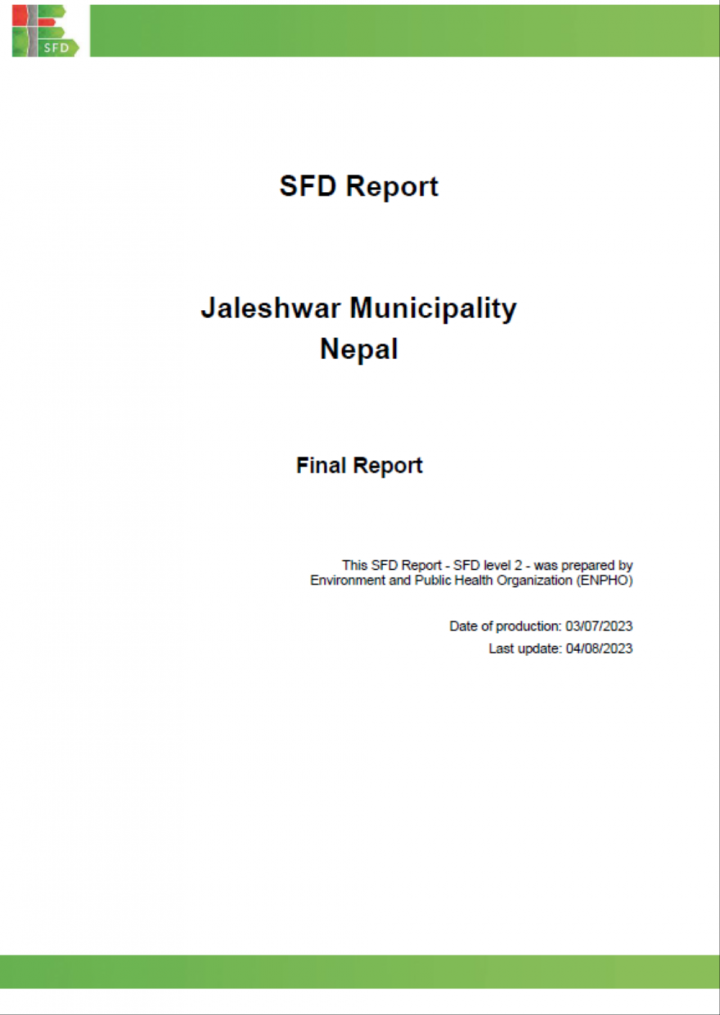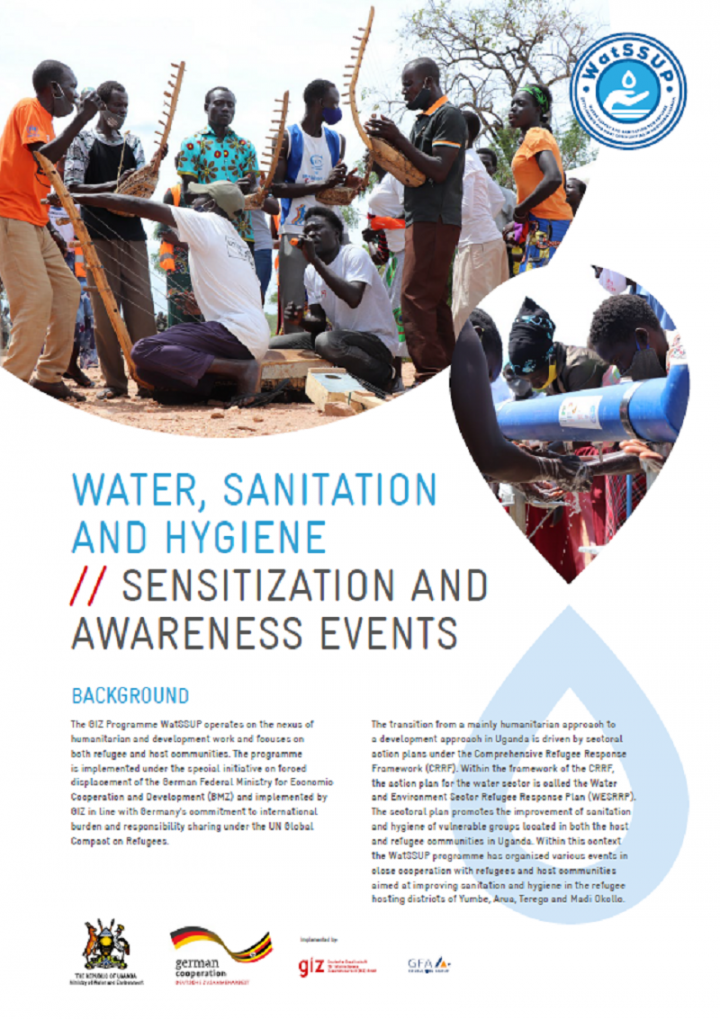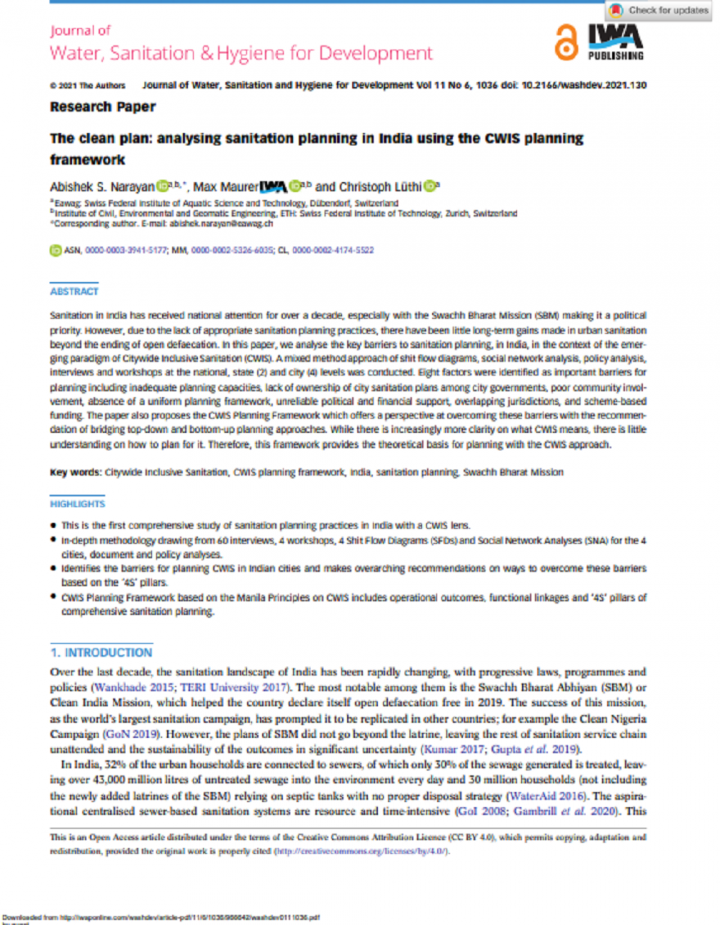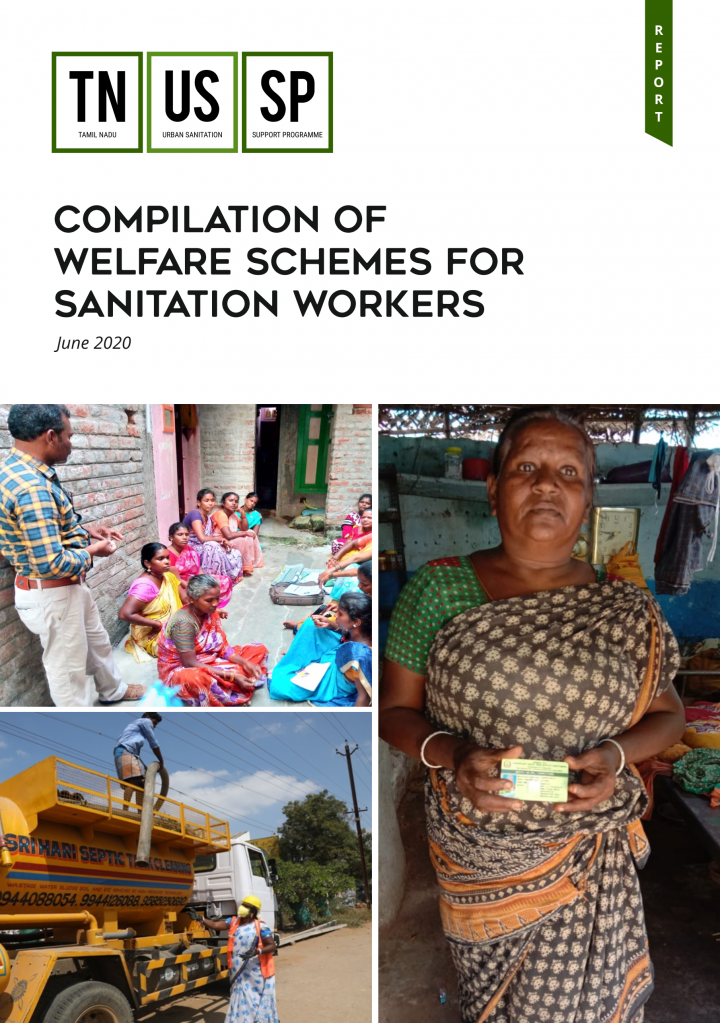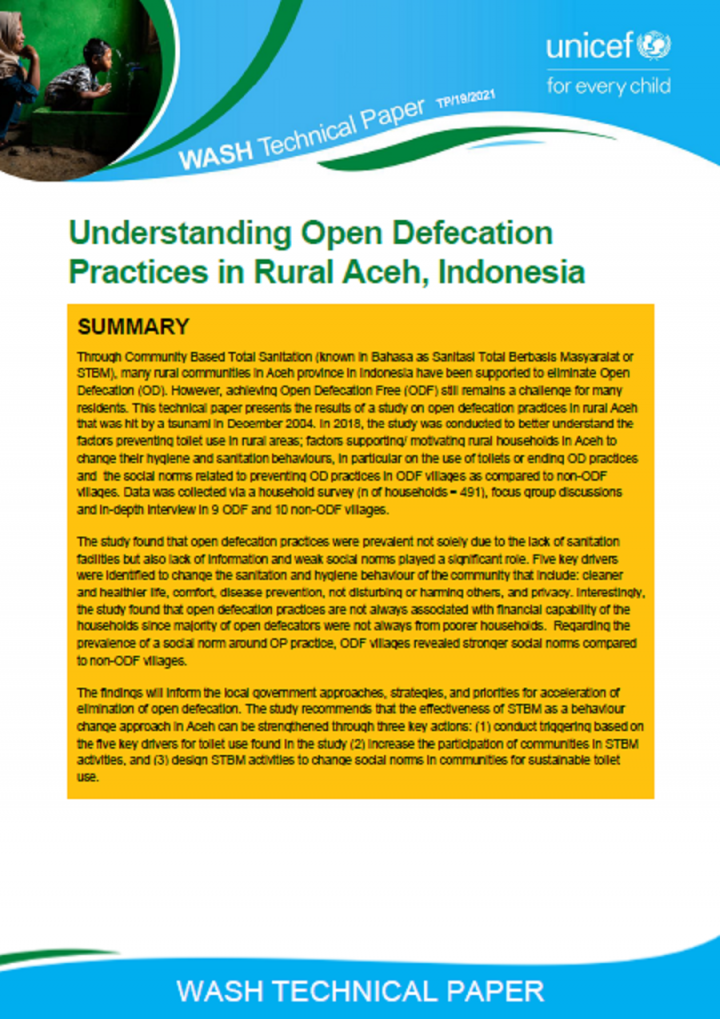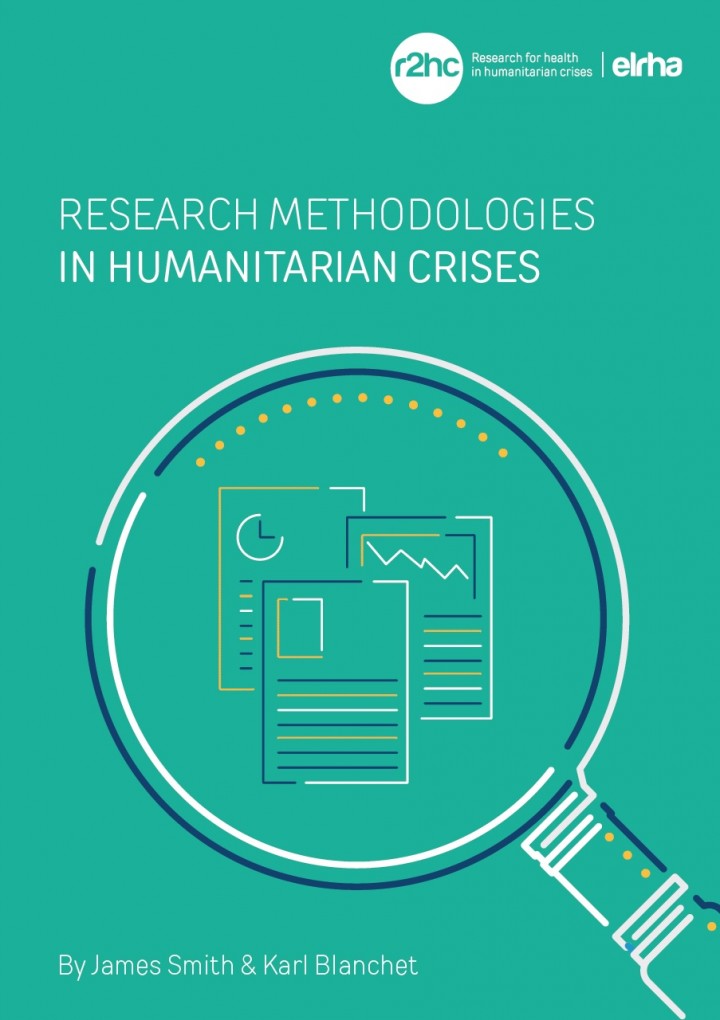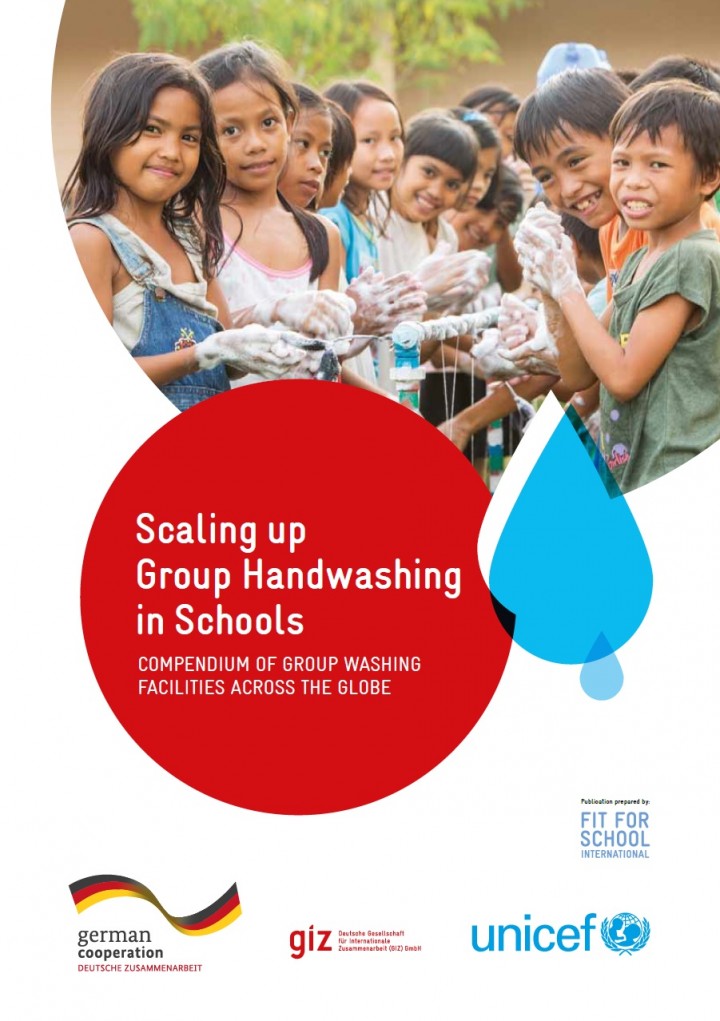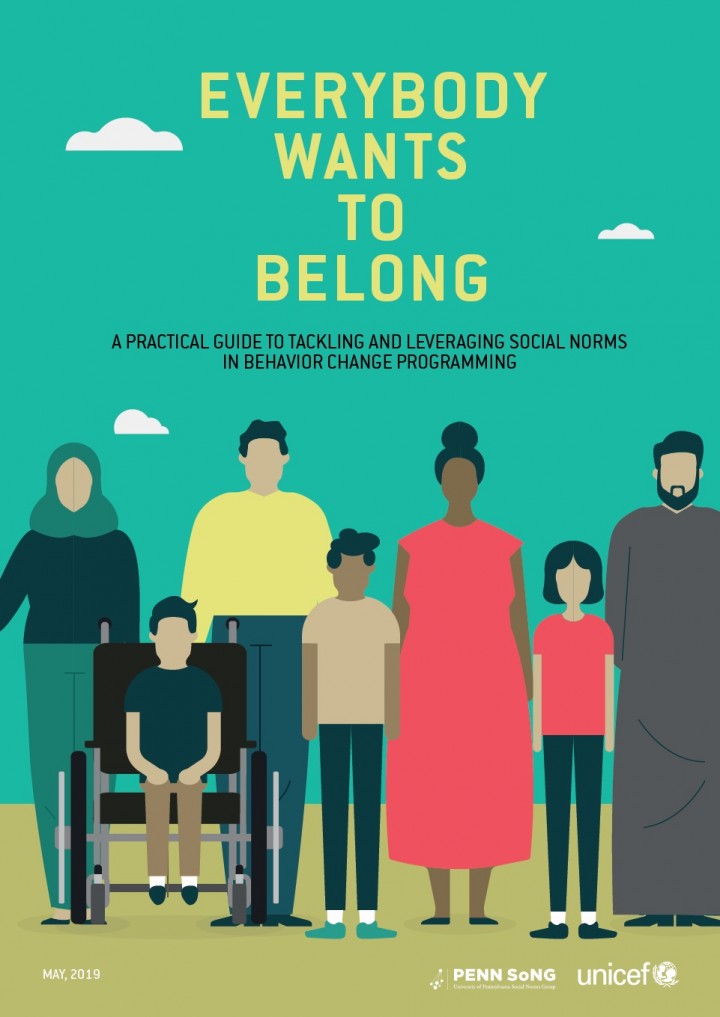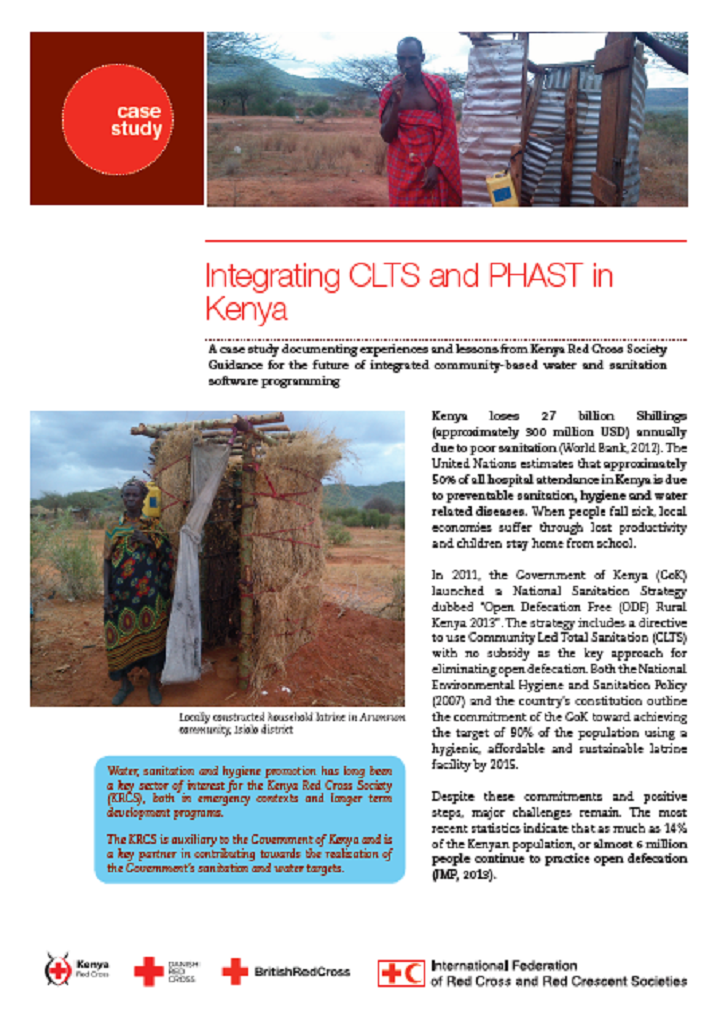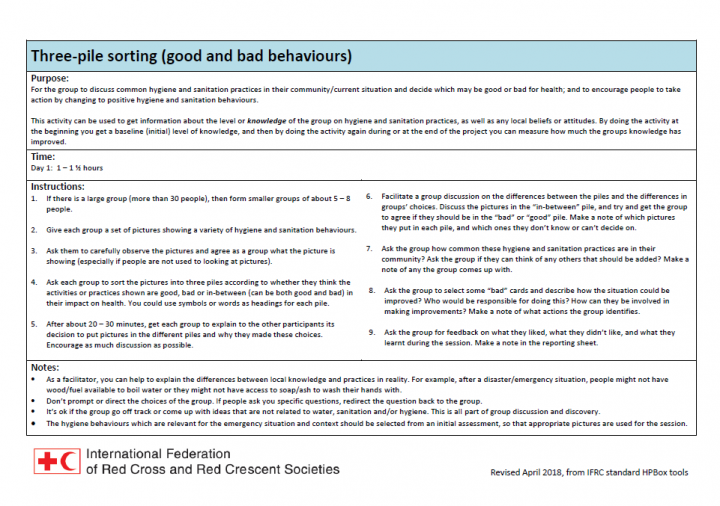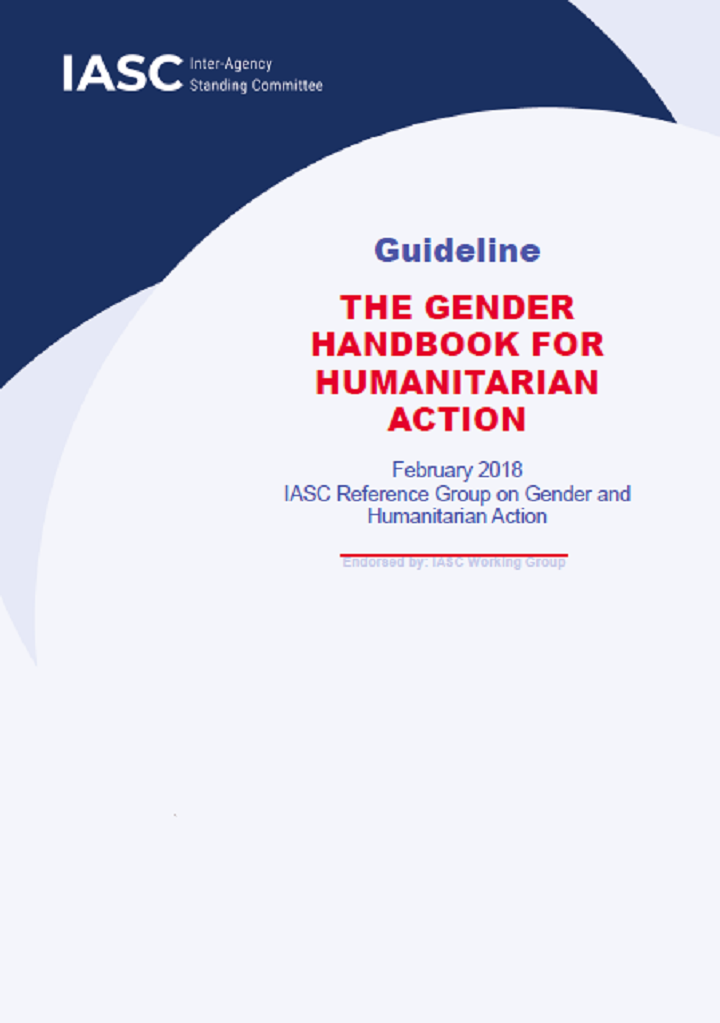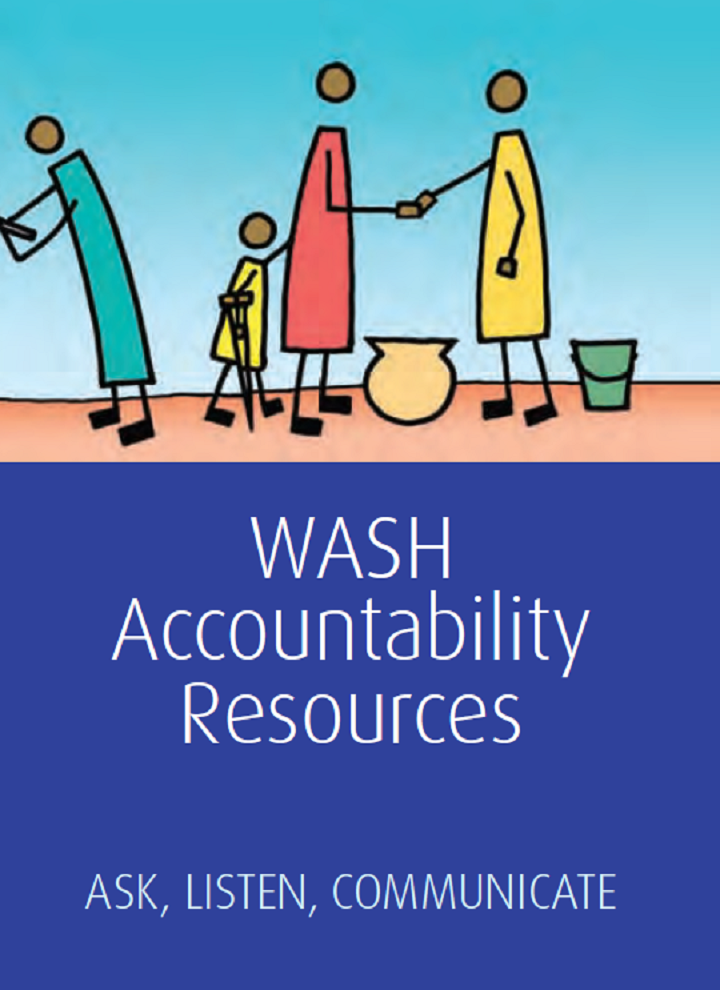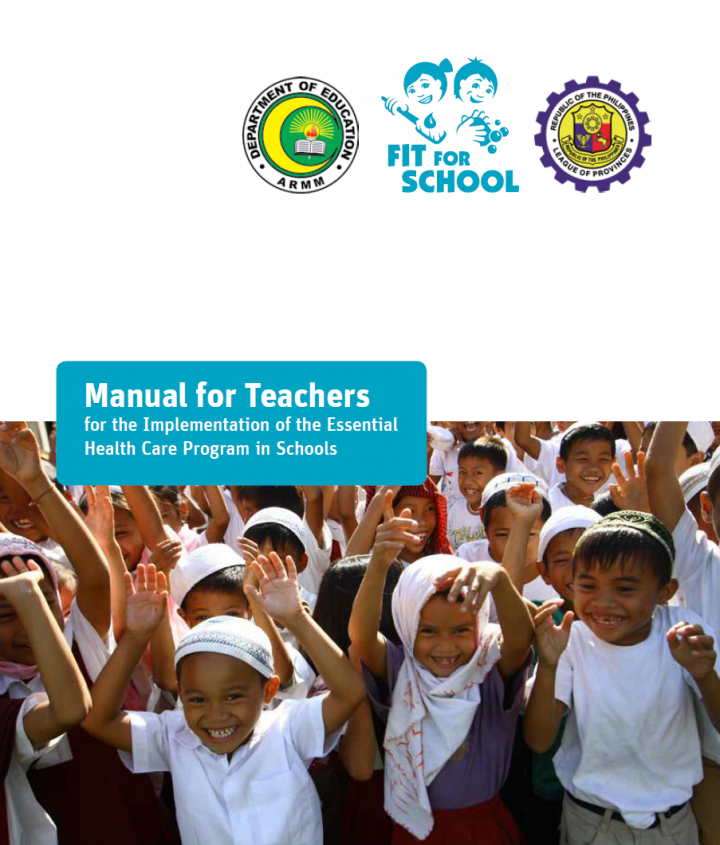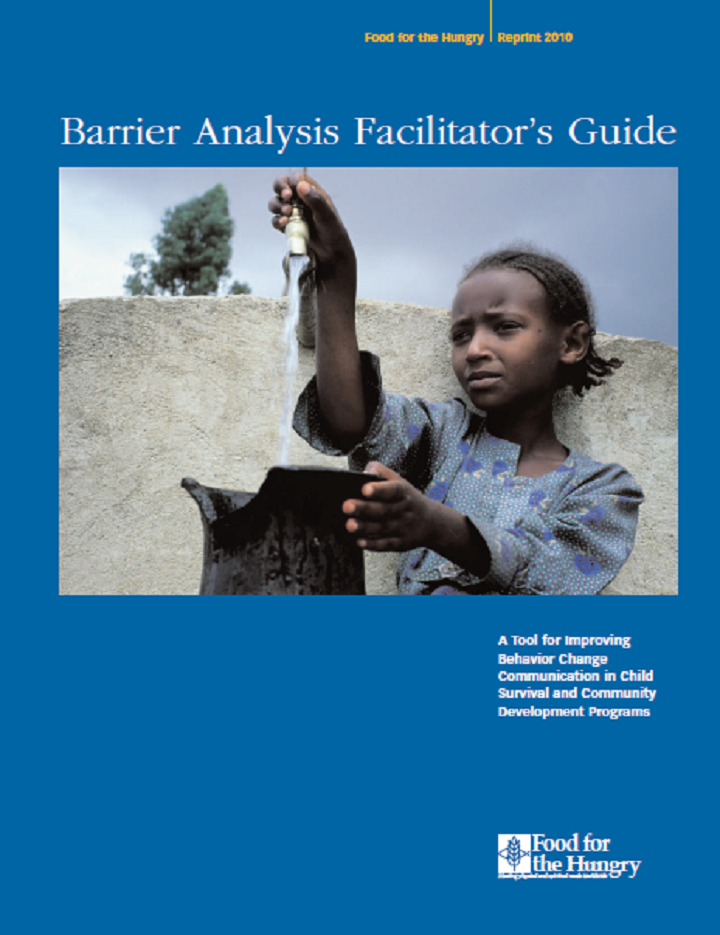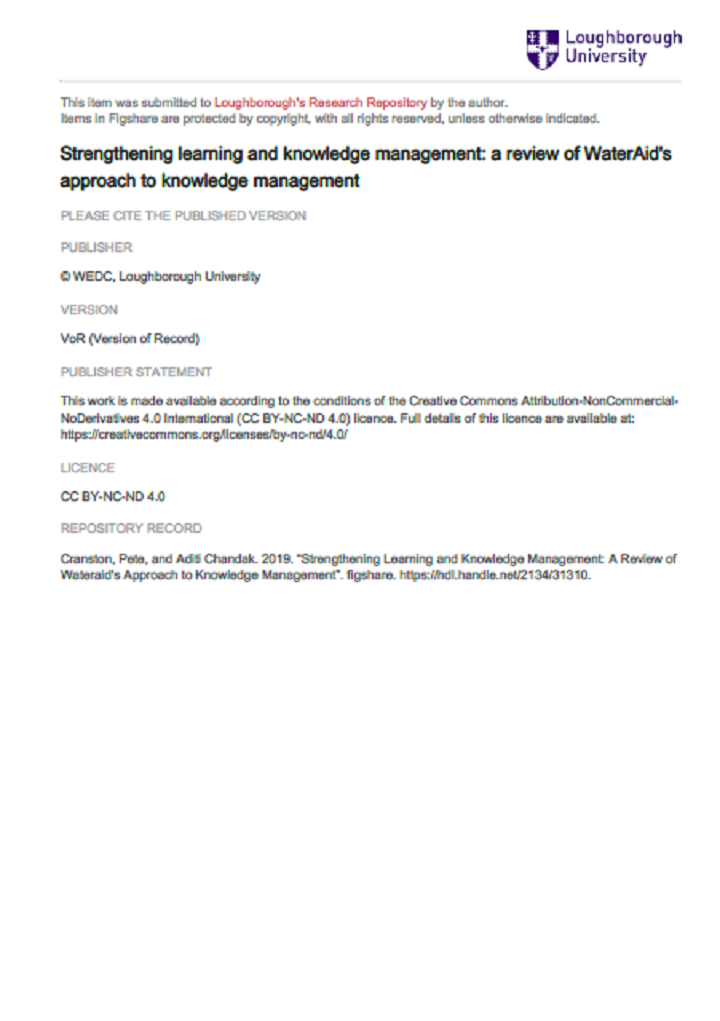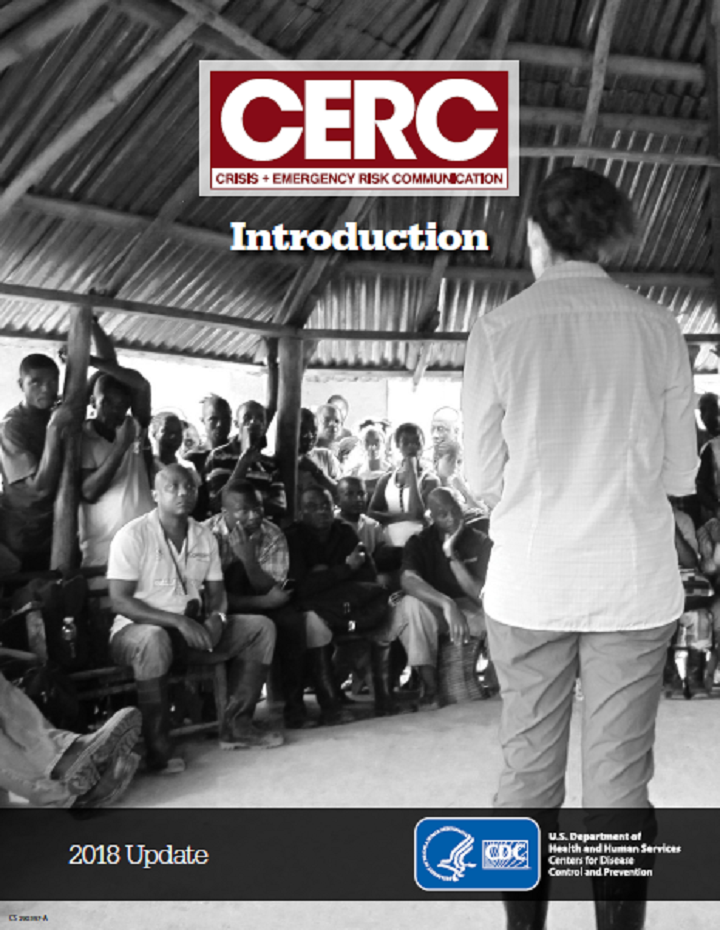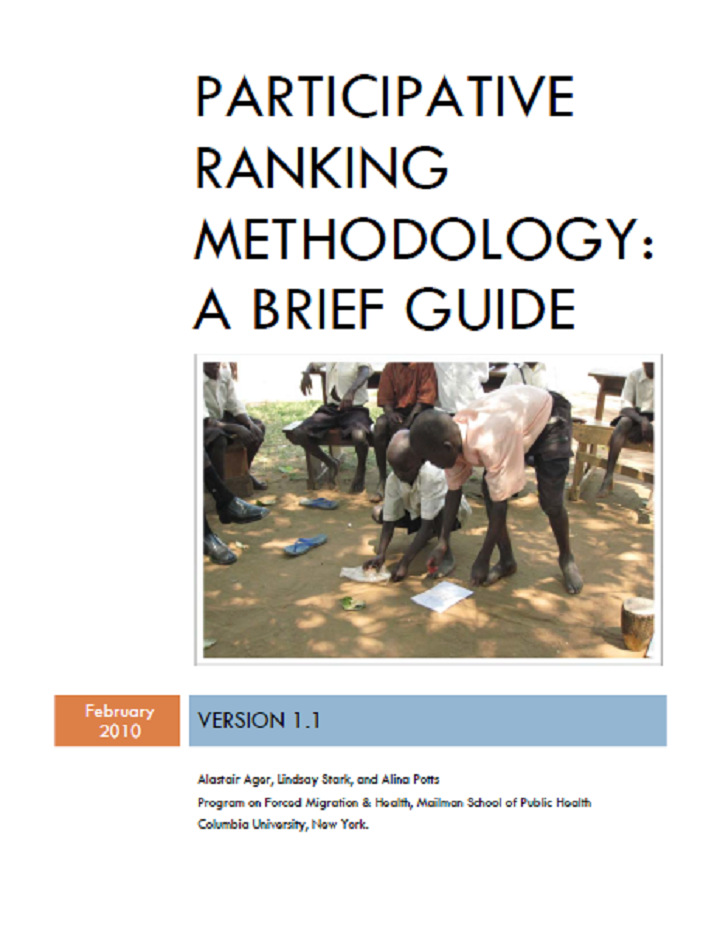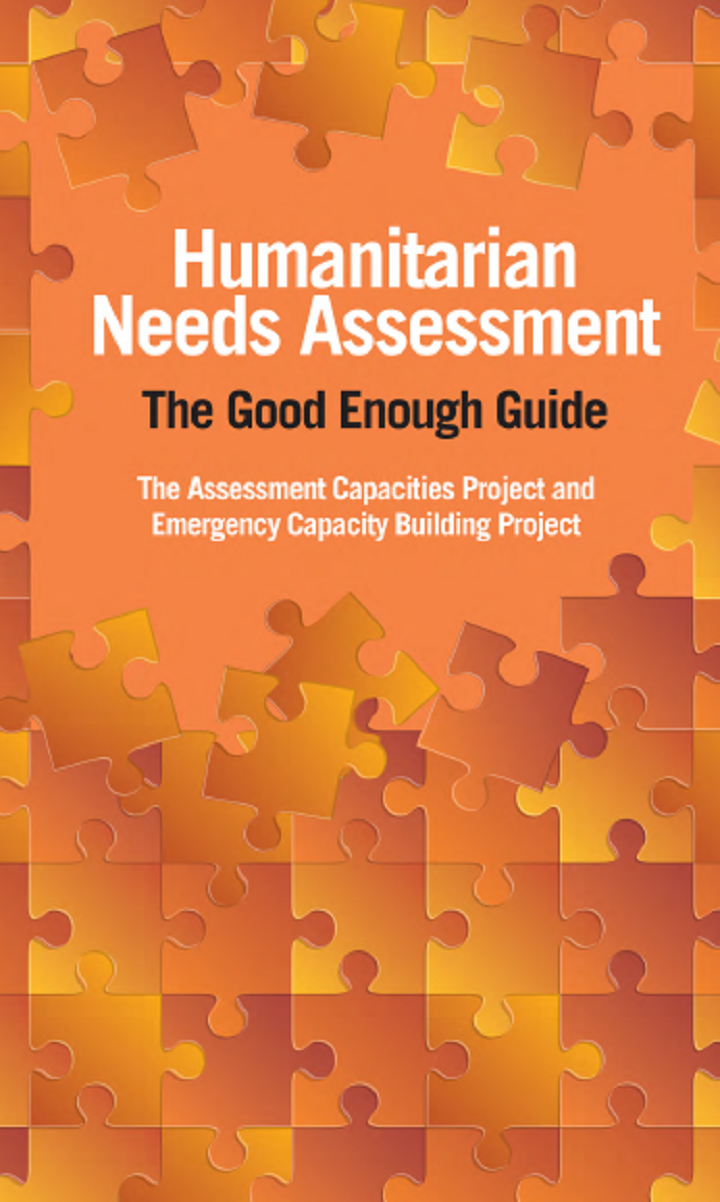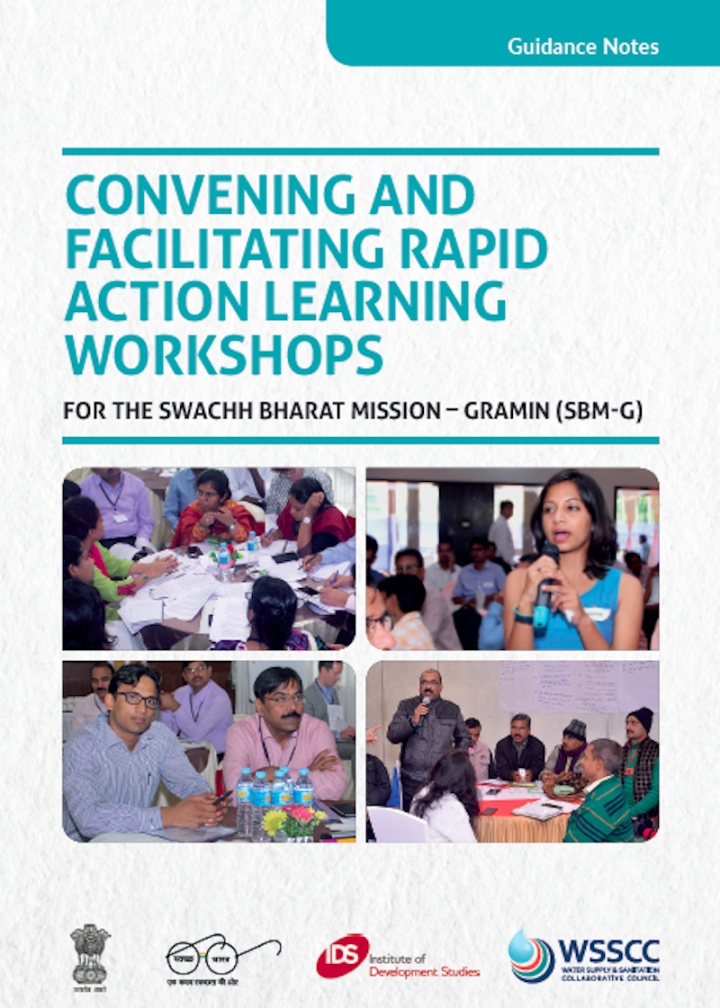Searching for information on Sanitation Workers?
The Sanitation Workers Knowledge + Learning Hub is the best source for all current news, trends, articles and updates on sanitation workers rights around the world.
Jaleshwar Municipality is in Mahottari District, Madhesh Province of Nepal. It has a total of 12 wards and covers an area of 44.72 square kilometres. It shares its boundary with Mahottari District and Pipra Rural Municipality in the north, Sitamadi District of neighboring country India in the south, Matihani Rural Municipality in the east and Ekdara Rural Municipality in the west. According to …
The GIZ Programme WatSSUP operates on the nexus of humanitarian and development work and focuses on both refugee and host communities. The programme is implemented under the special initiative on forced displacement of the German Federal Ministry for Economic Cooperation and Development (BMZ) and implemented by GIZ in line with Germany’s commitment to international burden and responsibility …
Sanitation in India has received national attention for over a decade, especially with the Swachh Bharat Mission (SBM) making it a political priority. However, due to the lack of appropriate sanitation planning practices, there have been little long-term gains made in urban sanitation beyond the ending of open defaecation. In this paper, we analyse the key barriers to sanitation planning, in …
Sanitation workers are the backbone of the public hygiene and waste management system. Despite providing an essential public service, their work is often unrecognised. A majority of the workers too are unaware of the social security and welfare schemes instituted by both the Central and State governments for their wellbeing, which prevents them from availing the benefits such as pension, …
Through Community Based Total Sanitation (known in Bahasa as Sanitasi Total Berbasis Masyaralat or STBM), many rural communities in Aceh province in Indonesia have been supported to eliminate Open Defecation (OD). However, achieving Open Defecation Free (ODF) still remains a challenge for many residents. This technical paper presents the results of a study on open defecation practices in rural …
Humanitarian needs are extensive and widespread. In order to best respond to the needs of people affected by humanitarian crises, research in humanitarian settings is increasingly recognised as a valuable endeavour which allows for contextually relevant knowledge generation.
Despite widespread appreciation of the value of research conducted in humanitarian settings, the inherent dynamism and …
We are very pleased to present the Practical guide to tackling and leveraging social norms in behavior change programming. It provides UNICEF, its governmental and non-governmental partners with accessible and engaging information on social norms, the role they play in perpetuating or changing harmful behaviors, and best practices for programming.
The Inter-Agency Standing Committee (IASC) published the original Women, Girls, Boys and Men. Different Needs — Equal Opportunities: Gender Handbook in Humanitarian Action in 2006. The purpose of the handbook was to provide humanitarian actors with guidance on gender analysis, planning and actions to ensure that the needs, priorities and capacities of women, girls, men and boys are considered …
Education and health go hand in hand. Children need to be healthy to be fit for school. Sadly, too many children in the Philippines are afflicted by everyday ailments that impact largely on their physical and mental development and limit them from getting the most from their education. The majority of Filipino children very often suffers from worm infections, severe tooth decay and from …
What is Crisis and Emergency Risk Communications (CERC)? The Centers for Disease Control’s (CDC) Crisis and Emergency Risk Communication (CERC) manual provides an evidence-based framework and best practices for anyone who communicates on behalfof an organization responding to a public health emergency.1 CERC is built around psychological and communication sciences, studies in the field of …
This document describes the participative ranking methodology, a development of the participatory rapid appraisal ranking method. Participative ranking is a mixed-methods approach to data collection, in which a group of knowledgeable participants are guided in generating responses to a specific question or set of questions. It draws on both quantitative and qualitative methodologies to generate …
Needs assessment is essential for programme planning, monitoring and evaluation, and accountability, however needs assessment is still a critical weakness of humanitarian response. Organizations urgently need to improve how they do assessments. ACAPS and the Emergency Capacity Building Project (ECB) have produced this guide to fill the gap that existed for a practical resource that pulls together …

